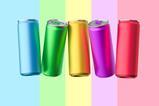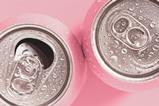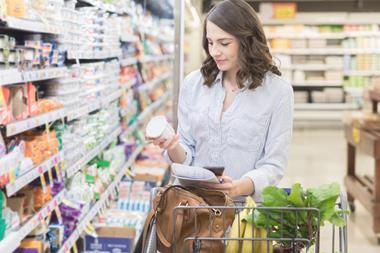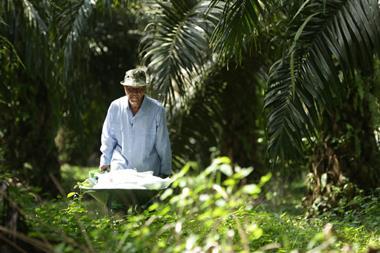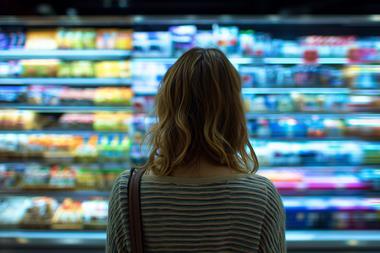Consumers are well aware of ‘recyclability’ and ‘sustainability’, but new research shows they need help getting to grips with the ‘circular economy’ and how beverage cans play into that.
Terms such as ‘recyclability’, ‘sustainability’ and ‘eco-consciousness’ have been common currency in the media for some time now, but a question mark remains over how much consumers understand what constitutes a ‘circular economy’.
Recent studies show that UK consumers’ notions about ‘circularity’ in relation to packaging, for example, remain unclear. At the same time, they express a strong desire to see companies and the government deliver on sustainability claims and refrain from greenwashing.
A report from PwC last year found that more than four-fifths (80%) of consumers say they are willing to pay more for sustainably produced or sourced goods. What’s more, it reported that consumers are assessing producers’ sustainability practices through tangible attributes including: production methods and recycling (40%), eco-friendly packaging (38%) and making a positive impact on nature and water conservation (34%).
However, a survey by YouGov in 2022 suggested that 87% of UK adults were unaware of the principles of a circular economy, in which the reuse of materials is prioritised, even though experts predict that circular economy strategies that reduce consumers’ waste could “cut global greenhouse gas emissions by 39%”.
And in a study last year by Northern Ireland’s Consumer Council, conducted by Cognisense, while the term ‘sustainability’ was recognised by 88% of respondents, with 73% very familiar or somewhat familiar with the term ‘greenhouse gas emissions’ and 60% very/somewhat familiar with the term ‘net zero’, only 23% were very/somewhat familiar with the term ‘circular economy’ while 56% were “not at all familiar” with the term.
So it appears there is still quite a gap to bridge if consumers are to get their heads around the circular economy and participate in it.

DRS takes UK one step closer
That said, the UK’s progress towards a circular economy is slowly advancing, with the government pledging support in January this year for a deposit return scheme for cans and Plastic bottles in England and Northern Ireland.
Although there is a waiting period until the legislation is implemented in October 2027, the move received widespread positive media coverage. And, in a bullish statement at the time, Circular Economy Minister Mary Creagh was reported as saying: “This Government will clean up Britain and end the throwaway society.”
But while the DRS is designed to incentivise consumers to recycle more, how much do they really understand about the circularity of drinks containers? After all, of the 30 billion single-use drinks containers bought across England, Northern Ireland and Scotland each year, including 13 billion drinks cans, an estimated 6.5 billion single-use drinks bottles and cans go to waste rather than being recycled, according to the government. That said, the UK did recycle 157,049 tonnes of aluminium packaging in 2024, according to Alupro, with the recycling rate for beverage cans at 81%.
How beverage cans are seen in ‘circular’ terms
At UK trade body Can Makers, chairman Tim Conybeare, who is also commercial director UK & Ireland at Crown Bevcan EMEA, agrees that there is “still a need to educate a majority of adults on exactly what is meant by ‘circularity’”.
However, recent research by the organisation – an update of its original 2023 consumer survey on can usage – showed a higher figure of 30% of UK adults expressing familiarity with ‘circularity’ and its meaning, with an additional 23% reporting they were familiar with the term but didn’t really understand it. According to Can Makers, this implies that the majority of UK adults have heard of ‘circularity’, although those who claim to be most familiar with it (18- to 34-year-olds) still lag behind their older counterparts when it comes to actually recycling.
Sustainability & ’circularity’: summary
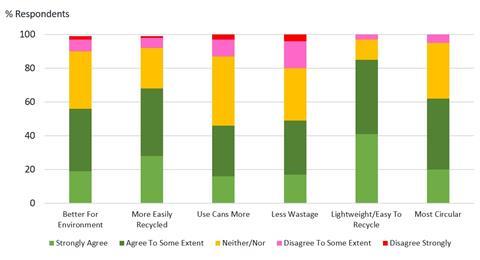
Sustainability and ‘circularity’ statements: agreement by age
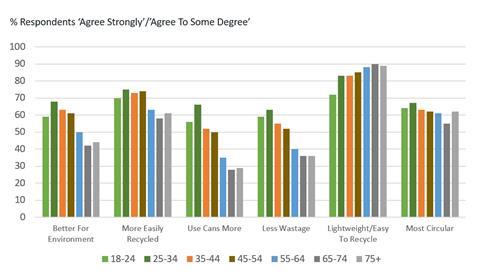
The study also found that a high percentage (84%) of UK consumers think beverage cans are the easiest packaging format to recycle, with just over two-thirds of UK adults believing they are more easily recycled than other forms of beverage packaging, as they are also seen as lightweight and easy to take to a recycling bin. In fact, 71% of UK adults now say they “always” recycle their cans (compared with 70% in 2023), while a further 20% say they recycle cans “most of the time”.
Moreover, when respondents were asked to rank the “most circular” of packaging formats, metal cans were placed first by 47% of UK adults and second by a further 31% [slide 33]. In fact, overall, 62% of UK adults agreed that metal cans were the “most circular” packaging format for drinks’.
So whether circularity is fully understood by consumers or not, the public are well aware of the recyclability of cans and their importance in the UK’s overall sustainability story. Can Makers’ study has elicited positive statements on cans as a beverage container, including: “The use of cans for drinks is better for the environment than other packaging formats”; “Drinks cans are more easily recycled than other types of drinks packaging”; and “I’d like to see cans used more as a packaging format for drinks in general”. And, among other findings, the study concluded that the perception of a metal can as “environmentally good” is becoming stronger.
With the use of cans for beverage containers on the rise (see panel), there is a growing imperative for people to embrace recycling and understand how they as consumers contribute to circularity overall. However, with a consumer education breakthrough on the circular economy still to be achieved, Conybeare concludes: “It is important that brands and stakeholders throughout the value chain continue to support initiatives to fully realise the benefits that beverage cans offer, and help consumers to make an informed purchasing decision.”
Cans are crushing it with consumers
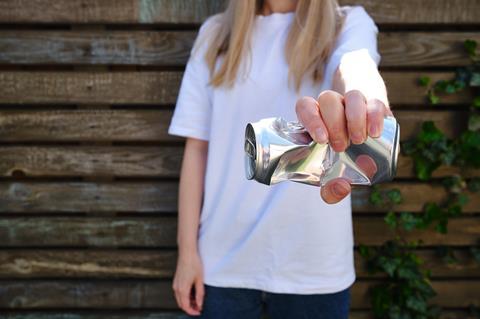
Portable, convenient and quick to chill are just three of the attributes associated with the rising popularity of drinks cans. Can Makers’ research indicates that claimed use of canned drinks has grown in the past two years – with 90% of UK adults in 2025 (up from 83% in 2023) saying they have bought a canned drink in the past year.
The use of cans remains highest among those aged 18 to 34 for all drinks categories – and especially so for cocktails, water and fruit juice. Compared with the previous research period, the study uncovered significant increases for claimed can usage in the two biggest categories – soda (up from 62% to 72%) and beer (45% to 54%). However, probably reflecting the rise of at-home socialising and entertainment, as well as on-the-go convenience, the biggest increase was for claimed purchase of canned cocktails (up from 18% to 29% – a significant rise of 61%).
Suitability of a can 2025 vs 2023
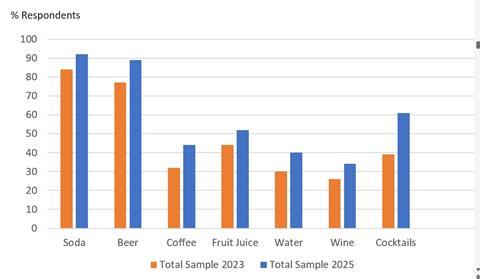
A can is generally acknowledged to be a suitable packaging container for both soda and beer across all age groups, as was the case in 2023. For the other beverages, though, there is a more favourable response to the idea of canned packaging among younger people – those aged 25 to 44 in particular (although, when it comes to cocktails, this extends to 55-year-olds).
However, by adding ‘design-related’ questions, the more recent Can Makers study discovered that the perception of cans affects consumers’ preference for them as a beverage container. The new research found that the design of cans both prompts purchase and implies premium.
Can Makers is keen to encourage inspired can design with its Can Makers Accolade Design Awards. As Conybeare points out: “The impact of effective design is now being harnessed more effectively by brands in all segments, and for the many new entrants to the market, it is a key differentiator. The possibilities for increasingly bold, complex and innovative can designs have increased exponentially in recent years, and many of the best are regularly recognised by the Can Makers Design Accolades programme.”
To find out more about the benefits of beverage cans and Can Makers’ extensive research, go to www.canmakers.co.uk
Source: This research was delivered via an online Omnibus study conducted between 24 and 27 January 2025 by The Jargon Group, formerly Pelican Communications, updated from a study in February 2023.










